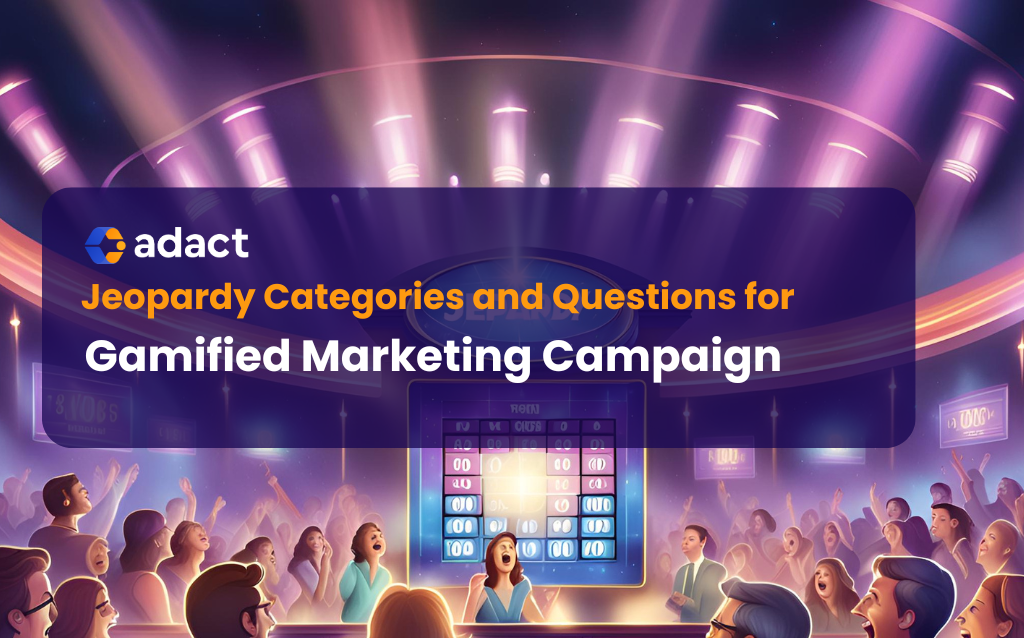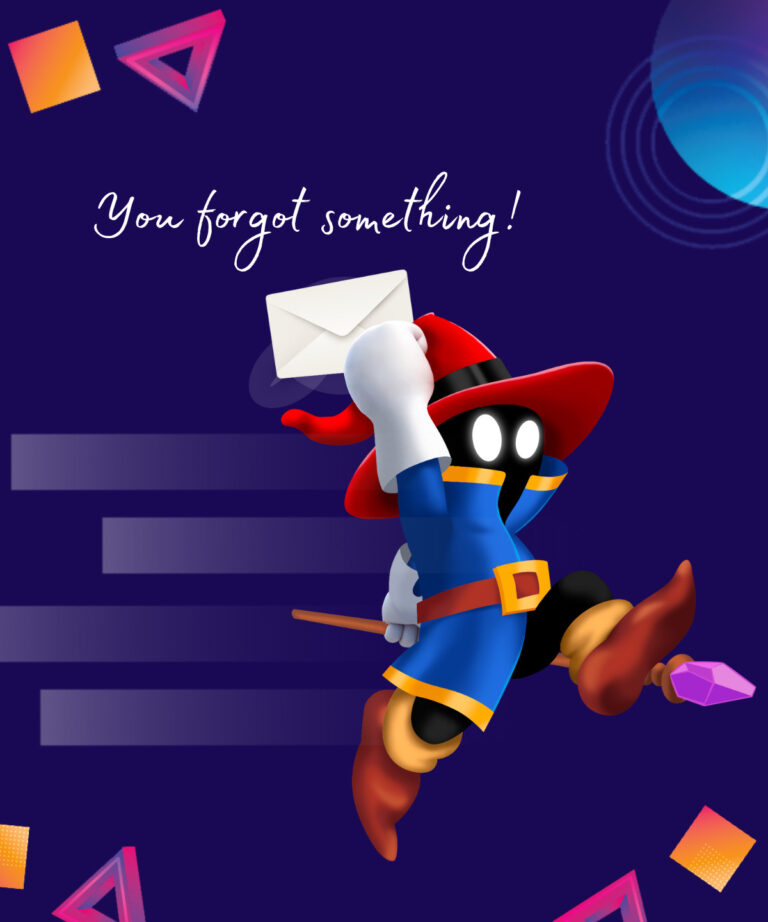Looking to spice up your marketing campaigns with interactive content? Jeopardy-style games offer a fun and engaging way to captivate your audience. By incorporating familiar game formats, you can boost customer interaction and enhance brand awareness. Let’s explore some creative and popular Jeopardy categories and questions perfect for gamified marketing.
Why Use Jeopardy in Marketing?
Jeopardy is a beloved game show known for its answer-and-question format. Utilizing this format in your marketing can:
- Increase Engagement: Interactive games keep customers on your site longer, reduce bounce rates, and enhance the time spent by users engaging with your content. This prolonged interaction can translate directly into greater interest and retention of brand messaging, creating a memorable experience that leaves a lasting impression.
- Enhance Learning: Educate your audience about your products or industry in a fun way. By integrating engaging and thought-provoking questions about your industry, organization, or offerings, you create opportunities for your audience to naturally learn more about your business. This educational element not only informs but also transforms potential customers into informed advocates of your brand.
- Boost Brand Loyalty: Gamified experiences encourage repeat interactions. When customers find that your marketing efforts offer more than just promotional material, but rather an enjoyable and repeatable experience, they become more inclined to return. The interactive and educational nature of a Jeopardy game can foster a sense of community, making your brand a topic of conversation and preference within customer circles.
Explore how you can utilize these principles with Adact’s no-code gamification platform and see real impacts in your campaigns.
Top Jeopardy Categories for Marketing Campaigns
1. Company History
Educate your audience about your brand’s journey. This category not only tests knowledge but also shares insights into the milestones and ethos that define your company. Knowing the history builds a narrative for your brand.
Sample Question:
- “In what year was our company founded?”
Such questions can ignite curiosity and foster a deeper connection with your brand story.
2. Product Knowledge
Test and improve customers’ understanding of your products or services. This is an excellent way to emphasize the unique features and benefits that set your offerings apart from the competition.
Sample Question:
- “This feature of our latest product helps improve user efficiency by 50%.”
These types of questions train your audience to recognize and appreciate your product’s distinct attributes.
3. Industry Jargon
Demystify complex terms related to your industry. Simplifying complex industry terminology can make you more relatable and accessible to your audience.
Sample Question:
- “This acronym stands for the practice of optimizing content to rank higher in search engines.”
Answer: What is SEO (Search Engine Optimization)?
By using industry jargon, you engage the audience familiar with these terms while educating the newcomers, positioning your brand as an authoritative figure in the field.
4. Pop Culture
Engage a wider audience by tapping into popular trends. This adds an element of fun and surprise, as well as broad relatability, to your game.
Sample Question:
- “This streaming service’s hit series features a group of kids from Hawkins, Indiana.”
Answer: What is ‘Stranger Things’?
Exploring pop culture topics helps capture the interest of a diverse audience base.
5. History
Connect your brand to historical events or milestones. This could be international history or significant moments within your sector.
Sample Question:
- “This historical event marked the launch of our first product line in 2010.”
By tying in historical elements, you provide a deeper, richer context and narrative for your products or services.
6. Science and Technology
Highlight innovations related to your offerings. Science-based questions can underscore the technological backbone of your business operations or products.
Sample Question:
- “Our app uses this type of intelligence to personalize user experience.”
Answer: What is artificial intelligence?
This adds a layer of esteem to your brand, showcasing cutting-edge technology adoption.
7. Geography
If your business operates globally, test knowledge of different locations. Incorporate cultural elements to demonstrate worldly awareness and reach.
Sample Question:
- “Our European headquarters is located in this city known as the ‘City of Lights’.”
Answer: What is Paris?
Geography-based questions highlight your brand’s international footprint.
8. Customer Success Stories
Feature testimonials or case studies as questions. By weaving customer testimonials into questions, you amplify the credibility and success of your brand through word-of-mouth storytelling.
Sample Question:
- “This company increased their sales by 80% using our platform.”
Through such questions, you underline the tangible benefits and success stories that your offerings deliver.
9. Workplace Safety
For internal campaigns, reinforce important safety protocols. Safety questions are particularly useful for internal training, promoting a secure work environment.
Sample Question:
- “What is the first step in our emergency evacuation procedure?”
Focus on safety themes to instill cautious and comprehensive safety practices within your workforce.
10. Food and Drink
If relevant, tie in fun facts about culinary topics. Culinary categories often bring an element of light-hearted learning into the game.
Sample Question:
- “This beverage is the most consumed drink worldwide after water.”
Answer: What is tea?
Such questions bring trivia that is both amusing and educational, appealing to a broad audience.
Crafting Engaging Jeopardy Questions
Creating compelling questions ensures a successful game experience and deeper interaction.
Tailor to Your Audience
Ensure the content resonates with your target demographic. Understand their interests and what keeps them engaged.
- Tip: If your audience is tech-savvy millennials, incorporate modern tech references.
By addressing audience-specific topics, you keep the game relevant and accessible, fostering greater participation.
Mix Difficulty Levels
Include a variety of questions to keep everyone engaged. Balancing difficulty is pivotal to ensure a wide range of participant skills are catered to.
- Easy: General knowledge questions to encourage participation.
- Challenging: Tougher questions that pique interest and competitive spirit.
Diverse difficulty levels motivate broad audience engagement, maintaining interest from novices to experts.
Use Visuals
Enhance engagement with images or videos. Visual aids enrich the game, making it more dynamic and captivating.
- Example: Include a photo and ask, “This is the landmark where we hosted our last annual conference.”
Utilizing visuals anchors questions and answers with real-world context, strengthening memory retention.
Keep It Relevant
Align questions with current events or trends. This keeps the content fresh and directly applicable to current happenings.
- Tip: Incorporate seasonal themes or holidays into your categories.
Relevancy breathes freshness into the campaign, ensuring it stays timely and interesting.
How Adact Can Elevate Your Gamified Campaign
Creating a Jeopardy-style game sounds great, but how can you bring it to life without coding skills? That’s where Adact’s no-code gamification platform comes in.
Why Choose Adact?
- User-Friendly Templates: Over 30 game templates, including Jeopardy-style quizzes.
- Customization: Tailor games to match your brand’s look and feel.
- Analytics: Gain valuable insights into user behavior and campaign performance.
- Integration: Seamlessly integrate with your CRM and manage prizes.
These features allow any business, regardless of size or market, to employ powerful interactive solutions that drive user engagement and conversion.
Success Stories
Businesses like yours have seen up to 80% higher conversion rates using Adact’s gamification tools.
- Case Study: Learn how companies created engaging Jeopardy trivia questions to boost customer interaction.
By leveraging gamification, brands can rejuvenate their marketing efforts and establish deeper connections with their audience.
Get Started
Ready to transform your marketing campaign?
- Create custom games like Jeopardy or even a Wordle challenge.
- Build interactive experiences to shift from passive content to active engagement.
Explore the transformative power of Adact’s gamification platform today and start crafting compelling experiences that resonate with your audience.
Frequently Asked Questions
What are good categories for Jeopardy?
Great categories are those that resonate with your audience and align with your brand. Consider topics like Company History, Product Knowledge, and Industry Jargon.
How many categories should a Jeopardy game have?
Traditional Jeopardy games have six categories per round, but you can adjust based on your campaign needs.
How can I create my own Jeopardy game?
Using platforms like Adact, you can easily create and customize your own Jeopardy game without any coding skills.
Engage Your Audience Today
Interactive games like Jeopardy can revolutionize your marketing campaigns by boosting engagement and brand loyalty. With Adact’s gamification tools, creating these experiences is easier than ever.
Ready to get started? Discover how you can create a custom Jeopardy game with our no-code platform.
“Adact introduces a new era of interactive marketing, making gamification accessible to businesses of all sizes.”
Have questions or need inspiration? Check out our guide on fun Jeopardy categories and questions to spark ideas for your next campaign.




